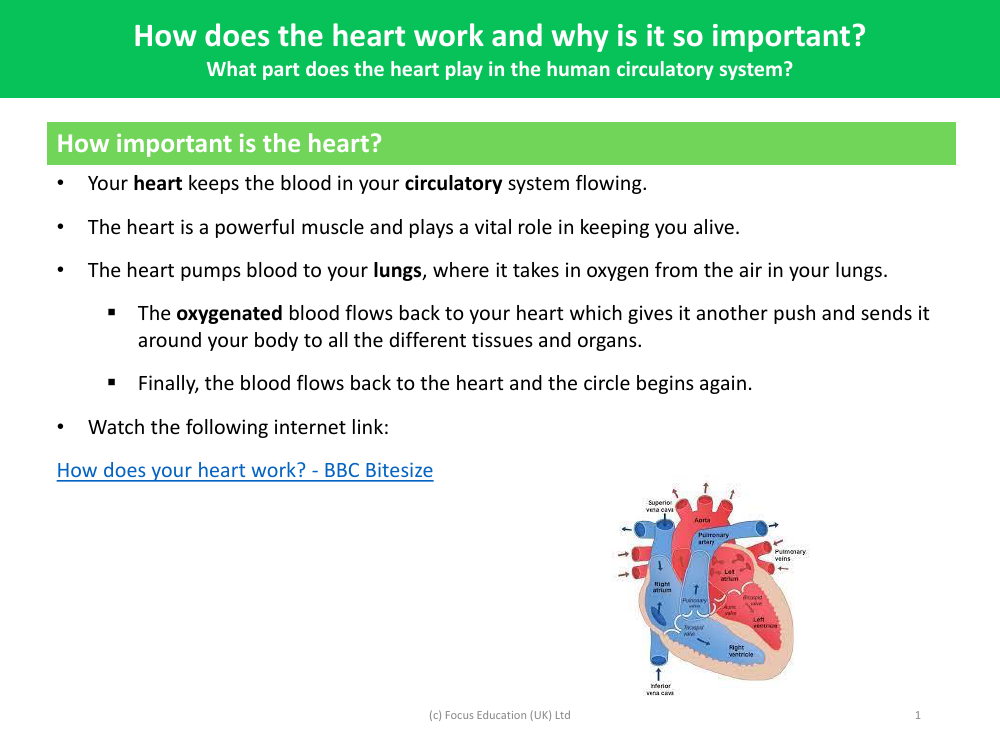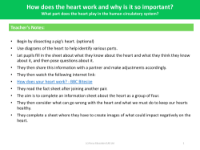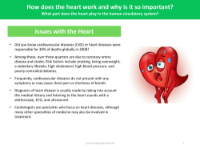How important is the heart - Info sheet

Science Resource Description
The heart is an absolutely crucial organ in the human body, serving as the central hub of the circulatory system. Its primary role is to keep blood circulating, ensuring that this vital fluid continuously flows throughout the body. As a strong muscle, the heart's pumping action delivers blood to the lungs for oxygenation. Once enriched with oxygen, the blood returns to the heart, which then propels it to various tissues and organs. This process not only provides oxygen and nutrients to cells but also aids in the removal of carbon dioxide and other waste products. The cycle of blood flowing to the heart, to the lungs, and then back out to the body is a continuous loop that sustains life.
An info sheet on the heart's importance details how this organ is composed of four chambers: the atria at the top, which collect incoming blood, and the ventricles at the bottom, which pump blood out. The circulatory system, akin to a superhighway of vessels, relies on the heart to maintain the flow of nutrient and oxygen-rich blood to every part of the body, which is essential for the normal functioning of organs. To support good circulation, the sheet suggests regular exercise and adequate water intake as simple yet effective lifestyle choices. Understanding the heart's function and its significance in the circulatory system is fundamental to appreciating how our bodies operate and remain healthy.





